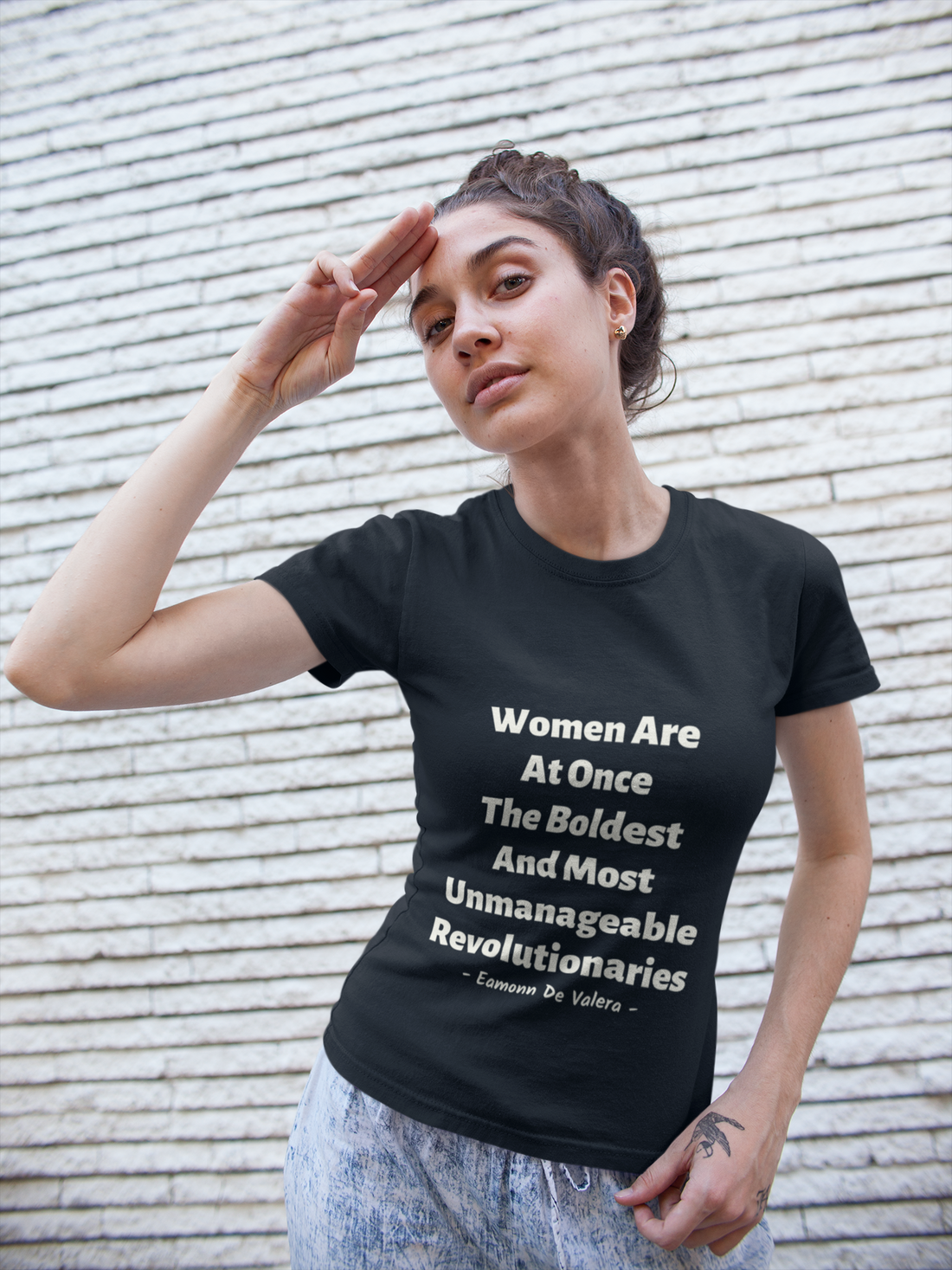Ireland has not always been her own. For a large period of her history, she has suffered under the oppressive rule of outside forces. People who came in conquest, instead of seeking cohabitation. It's one of the sad truths about our land.
Thankfully we are now over 100 years as a nation which was declared in an act of open rebellion in 1916. The Easter Rising saw the beginning of the end for English rule in the majority of Ireland.
One of the people involved with that was was Éamon De Valera, a prominent member of the uprising, who survived the executions and became a leading statesman for Ireland. In Ireland's history no other person has served longer as Taoiseach, and he only resigned the post to take up the position as Ireland's third president.
So what did he mean by this casual statement?
For this we need to look at the role of women in Ireland's struggles for independence.
Of course it's easy to point to Countess Markievicz, to begin with. A founder member of Fianna Éireann, Cumann na mBan and the Irish Citizen Army, she took part in the Easter Rising in 1916, when Irish people fought to establish an Irish Republic. She was sentenced to death, but this was reduced on the grounds of her sex.
On 28 December 1918, she was the first woman elected to the UK House of Commons, though she did not take her seat and - along with the other Sinn Féin TDs - formed the first Dáil Éireann. She was also one of the first women in the world to hold a cabinet position, as Minister for Labour from 1919 to 1922.
Yet as remarkable as this singular woman was, she was by no means alone in fighting for an independent Ireland. Cumann na mBan was an organisation founded by women, for women, who would work in conjunction with the recently formed Irish Volunteers.
On the day of the Rising, Cumann na mBan members entered the General Post Office on O'Connell Street in Dublin with their male counterparts. By nightfall, women insurgents were established in all the major rebel strongholds throughout the city – except two; Boland's Mill and the South Dublin Union, positions held by Éamon de Valera and Eamonn Ceannt.
The majority of the women worked as Red Cross workers, were couriers, or procured rations for the men. Members also gathered intelligence on scouting expeditions, carried dispatches and transferred arms from dumps across the city to insurgent strongholds. They even stepped up as gun runners.
Some members of Cumann na mBan were also combatants in the Rising. Many women were directly involved in taking over the targeted positions around the country. Mary Hyland and Lily Kempson were among a small force under Frank Robbins, which successfully occupied the College of Surgeons opposite the Green. Helena Molony was among the Citizen Army company which attacked Dublin Castle and subsequently occupied the adjacent City Hall, where she and other women had sniping duties.
At the Four Courts, the women of Cumann na mBan helped to organise the evacuation of buildings at the time of surrender, and to destroy incriminating papers. When finally the rebellion came to an end after repeated shelling and machine gun fire from a British forces, Pearse asked Cumann na mBan member Elizabeth O'Farrell to act as a go-between.
Under British military supervision she brought Pearse's surrender order to the rebel units still fighting in Dublin. Over 70 women, including many of the leading figures in Cumann na mBan, were arrested after the insurrection, and many of the women who had been captured fighting were imprisoned in Kilmainham Gaol.
Despite all of this, Cumann na mBan continued through out Ireland, working steadfastly and supporting the work to see a free Ireland. Raising remembrances for those whose lives had been taken, awareness of the struggles of those still imprisoned and canvasing for political activism and change. Even the rift caused by the establishment of the Irish free state and the provisional government outlawing the group never fully diminished the impact that these women revolutionaries have had on the history of our island.
During a casual conversation circa 1975, Éamon De Valera dropped this little nugget, given his experience of the Revolutionary Women he had to work with during the 1916 Rising and the subsequent War of Independence in Ireland. He said: "Women are at once the boldest and most unmanageable revolutionaries." He did not mean it in a complimentary way.
De Valera may have declined to have women fight beside him in Boland's Mills during the Rising, but I'm sure that we can all be grateful to these bold unmanageable women, and the revolution through which they helped birth the Republic of Ireland.
